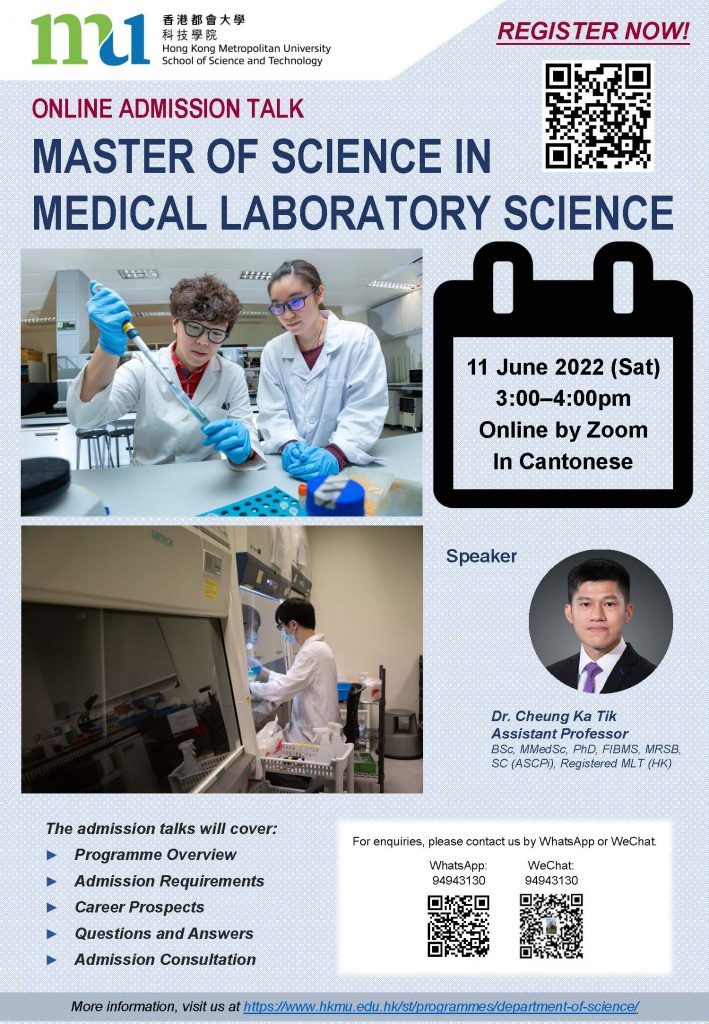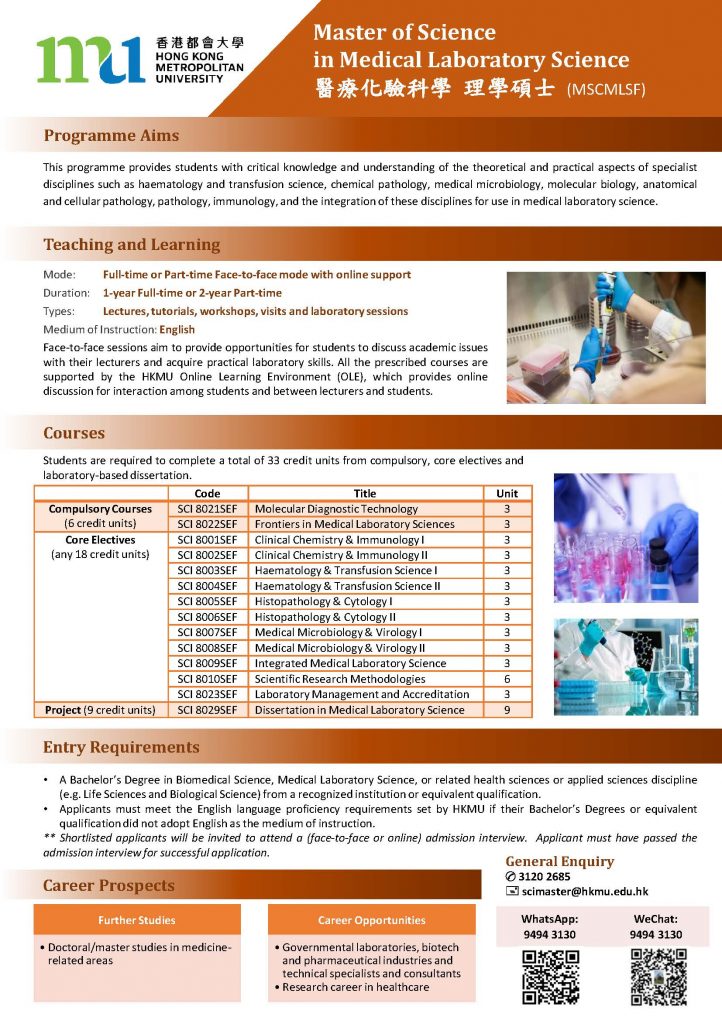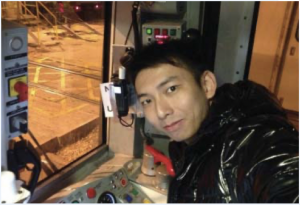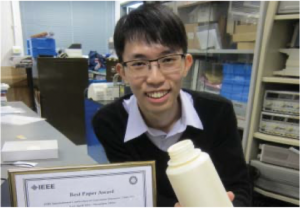| Compulsory Courses (6 credit units) |
| SCI 8021SEF | Molecular Diagnostic Technology | 3 |
| SCI 8022SEF | Frontiers in Medical Laboratory Sciences | 3 |
| Core Elective (Any 18 credit units from the list below) |
| SCI 8001SEF | Clinical Chemistry & Immunology I | 3 |
| SCI 8002SEF | Clinical Chemistry & Immunology II | 3 |
| SCI 8003SEF | Haematology & Transfusion Science I | 3 |
| SCI 8004SEF | Haematology & Transfusion Science II | 3 |
| SCI 8005SEF | Histopathology & Cytology I | 3 |
| SCI 8006SEF | Histopathology & Cytology II | 3 |
| SCI 8007SEF | Medical Microbiology & Virology I | 3 |
| SCI 8008SEF | Medical Microbiology & Virology II | 3 |
| SCI 8009SEF | Integrated Medical Laboratory Science | 3 |
| SCI 8010SEF | Scientific Research Methodologies | 6 |
| SCI 8023SEF | Laboratory Management and Accreditation | 3 |
| Project (9 credit units) |
| SCI 8029SEF | Dissertation in Medical Laboratory Science | 9 |

















